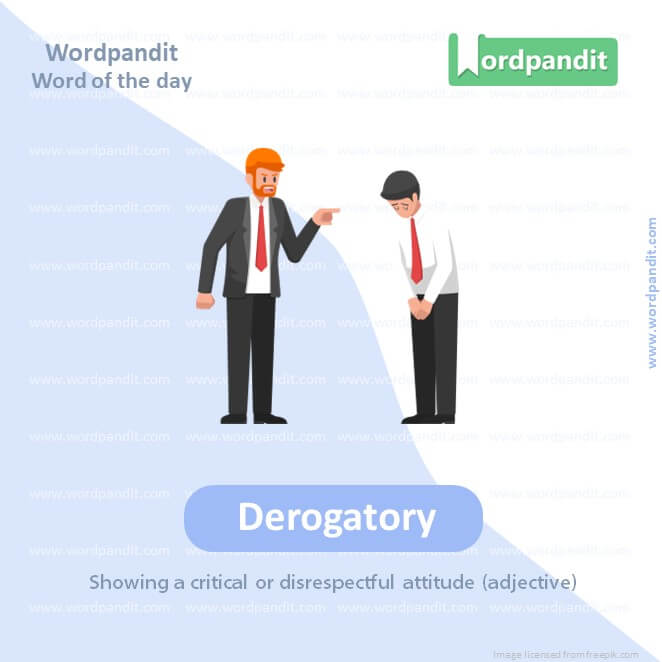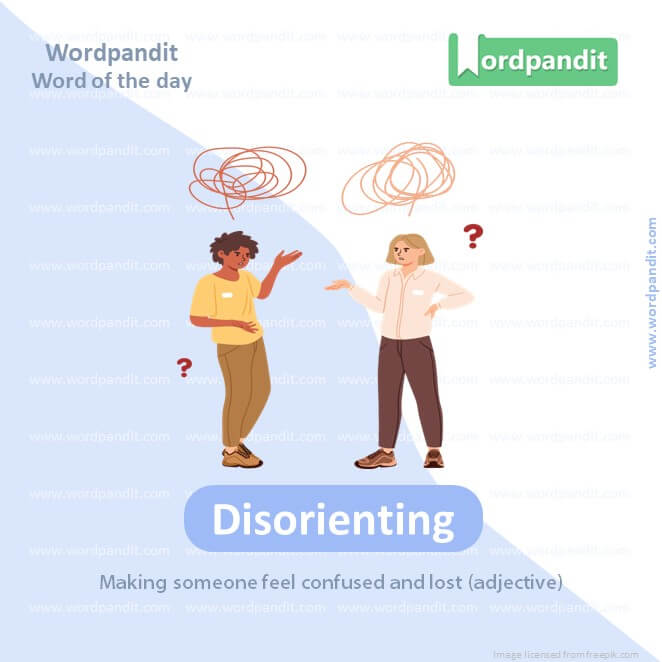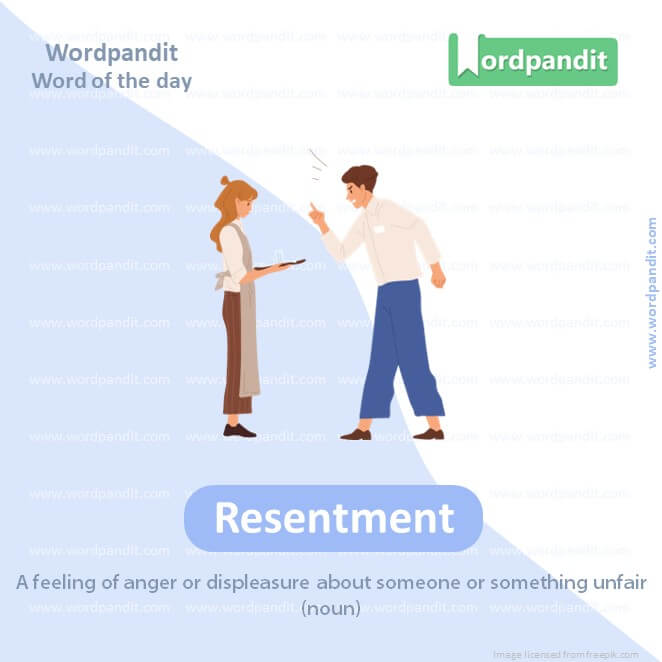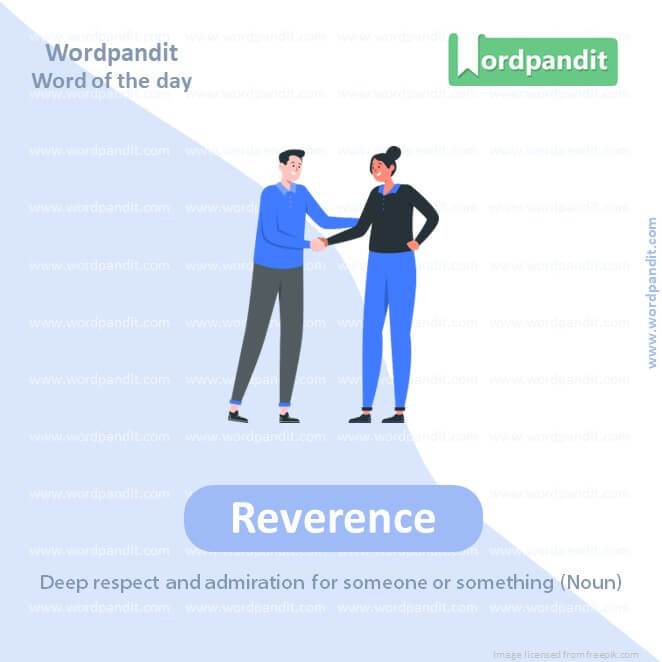Daily Vocabulary Words: List of Daily Used Words in Leading Indian Newspapers
Hi there. Welcome to this special section @ Wordpandit. Our endeavour here is straightforward: highlighting daily vocabulary words that you would come across in leading newspapers in the country. We have included the following newspapers in our selection:
• The Times of India
• The Economic Times
• Hindustan Times
• Mint
• Indian Express
We are putting in extensive work to develop your vocabulary. All you have to do is be regular with this section and check out this post daily. This is your repository of commonly used words; essentially, we are posting a list of daily used words. Hence, this has significant practical application as it teaches you words that are commonly used in leading publications mentioned above.
Visit the website daily to learn words from leading Indian newspapers.

WORD-1: Derogatory
CONTEXT: Women without children are considered to be barren, referred to with derogatory words such as “banjh” in Hindi.
SOURCE: Indian Express
Explanatory Paragraph: If you call someone a mean name or say something about them that’s not nice at all, that’s being “derogatory.” It’s like when someone says something to hurt another person’s feelings on purpose or to make them seem less important.
Meaning: Showing a critical or disrespectful attitude (adjective).
Pronunciation: duh-ROG-uh-tor-ee
Synonyms: Disparaging, Belittling, Dismissive, Pejorative, Insulting, Slighting, Demeaning.
Usage Examples:
1. The teacher warned the student about using derogatory language in class.
2. Derogatory comments about anyone’s background are unacceptable.
3. He apologized for his derogatory remark about her artwork.
4. Using derogatory terms can harm people’s feelings and self-esteem.

WORD-2: Disorienting
CONTEXT: the recognition in both psychological and feminist literature that recognises the difficult process of becoming a mother, one that can often feel disorienting and exhausting.
SOURCE: Indian Express
Explanatory Paragraph: Imagine spinning around really fast and then stopping suddenly. You might not know which way is up, down, or all around. That feeling is what we call “disorienting.” It’s when you feel confused and can’t figure out where you are or what’s happening.
Meaning: Making someone feel confused and lost (adjective).
Pronunciation: dis-OR-ee-en-ting
Synonyms: Confusing, Bewildering, Perplexing, Baffling, Unsettling, Disconcerting, Dizzying.
Usage Examples:
1. The sudden blackout was disorienting for everyone in the building.
2. Finding her way out of the maze was a disorienting experience.
3. The disorienting effect of the medication made it hard to focus.
4. He found the city’s streets disorienting on his first visit.

WORD-3: Paediatrician
CONTEXT: The celebrated paediatrician and psychoanalyst Donald Winnicott, writing in 1949, made a rather startling observation when he wrote that “mother hates her infant from the word go”.
SOURCE: Indian Express
Explanatory Paragraph: A “paediatrician” is a doctor, but not just any doctor. They’re special doctors who know all about taking care of kids, from tiny babies to bigger kids. They help when you’re sick, make sure you’re growing healthy, and give you shots so you don’t catch bad illnesses.
Meaning: A medical doctor specializing in the care of children and their diseases (noun).
Pronunciation: pee-dee-uh-TRISH-un
Synonyms: Child doctor, Infant physician, Kids’ health specialist, Juvenile doctor, Child’s physician, Youth doctor.
Usage Examples:
1. The paediatrician gave her advice on how to soothe her teething baby.
2. He decided to become a paediatrician because he loves working with children.
3. The paediatrician checked the child’s growth and development during the visit.
4. Finding a good paediatrician is important for new parents.
WORD-4: Exquisite
CONTEXT: My children cause me the most exquisite suffering of which I have any experience.
SOURCE: Indian Express
Explanatory Paragraph: Imagine the most beautiful flower you’ve ever seen or the tastiest cake you’ve ever eaten. “Exquisite” is a word that means something is so beautiful, perfect, or delicious that it’s just amazing. It’s like seeing or tasting something so good that it makes you say “wow!”
Meaning: Extremely beautiful and delicate (adjective).
Pronunciation: ek-SKWIZ-it
Synonyms: Beautiful, Elegant, Delicate, Refined, Superb, Magnificent, Splendid.
Usage Examples:
1. She wore an exquisite dress to the ball.
2. The chef prepared an exquisite meal that delighted all the guests.
3. His craftsmanship in making the jewelry was truly exquisite.
4. They admired the exquisite detail in the painting.

WORD-5: Resentment
CONTEXT: t is the suffering of ambivalence: the murderous alternation between bitter resentment and raw-edged nerves, and blissful gratification and tenderness.
SOURCE: Indian Express
Explanatory Paragraph: Imagine someone took your favorite toy and didn’t give it back. You might feel really upset and keep thinking about it, wishing you could have your toy again. “Resentment” is when you feel this kind of angry and upset feeling inside because of something unfair or wrong that happened to you.
Meaning: A feeling of anger or displeasure about someone or something unfair (noun).
Pronunciation: ree-ZENT-ment
Synonyms: Bitterness, Indignation, Displeasure, Grudge, Irritation, Anger, Discontent.
Usage Examples:
1. She felt a deep resentment towards her coworker for taking credit for her work.
2. Holding onto resentment can harm your mental health.
3. The decision fueled resentment among the team members.
4. He had to work through his feelings of resentment after the argument.
WORD-6: Recrimination
CONTEXT: Both writers create space for mothers to experience fatigue and despair in the task of mothering without the self recrimination and shame that often leads them towards self condemnation.
SOURCE: Indian Express
Explanatory Paragraph: Imagine you and your friend are arguing about who lost the ball. You say it’s their fault, and they say it’s yours. When both of you keep blaming each other back and forth, that’s called “recrimination.” It’s like a blame game where no one wants to take responsibility.
Meaning: Mutual accusations (noun).
Pronunciation: ree-krim-uh-NAY-shun
Synonyms: Countercharge, Accusation, Blame, Retaliation, Counterattack, Rebuttal, Backbiting.
Usage Examples:
1. The discussion quickly devolved into a cycle of recriminations.
2. Recriminations flew between the two parties, making reconciliation difficult.
3. She was tired of the constant recriminations in her family.
4. To move forward, they needed to stop the recriminations and find a solution.
WORD-7: Consolidation
CONTEXT: Staying with this path of consolidation implies a steep reduction in the deficit of 1.4 percentage points over the next two years.
SOURCE: Indian Express
Explanatory Paragraph: Imagine you have lots of small toy blocks spread all over the place. If you put them all together to build a big castle, you’re making everything stronger and together in one place. “Consolidation” is just like that – it’s about bringing things together to make them stronger or more effective, like combining smaller things into one big thing.
Meaning: The act of combining things together to form a more coherent whole, or strengthening one’s position (noun).
Pronunciation: kuhn-sol-ih-DAY-shun
Synonyms: Merger, Unification, Amalgamation, Integration, Strengthening, Stabilization, Centralization.
Usage Examples:
1. The consolidation of the companies created a more powerful corporation.
2. Debt consolidation can help manage payments more efficiently.
3. The consolidation of their efforts led to the project’s success.
4. The new regime sought consolidation of power to strengthen its rule.

WORD-8: Reverence
CONTEXT: Along with my mother, he went on all the major pilgrimages in India — from Kedarnath to Rameshwaram — and visited the Vatican with the same reverence.
SOURCE: Indian Express
Explanatory Paragraph: Think about looking up at the stars and feeling amazed by how big and beautiful they are. Or how you feel when you’re really, really respectful and quiet in a special place. “Reverence” is a feeling of deep respect or awe for something or someone.
Meaning: Deep respect and admiration for someone or something (Noun).
Pronunciation: REV-er-ens
Synonyms: Admiration, Esteem, Honor, Veneration, Worship, Respect, Devotion.
Usage Examples:
1. She held her grandmother in great reverence and listened carefully to her stories.
2. The ceremony was conducted with reverence for the tradition.
3. His reverence for nature was evident in his conservation efforts.
4. The temple was a place of reverence and quiet reflection.
WORD-9: Humming
CONTEXT: Most of the attendants who helped care for him also began humming the bhajan.
SOURCE: Indian Express
Explanatory Paragraph: Think about the sound you make when you’re happy and a song is stuck in your head, so you quietly make the tune with your mouth closed. That’s “humming.” It’s making a musical sound without opening your mouth, like a bee buzzing softly as it flies.
Meaning: Making a low, steady continuous sound like that of a bee (verb).
Pronunciation: HUM-ing
Synonyms: Buzzing, Murmuring, Singing, Thrumming, Drone, Purring, Whirring.
Usage Examples:
1. She was humming a tune while working in the garden.
2. The room was filled with the humming sound of the air conditioner.
3. He found the humming of the bees in the flowers soothing.
4. The old machine started humming after some repairs.
WORD-10 Unerringly
CONTEXT “Hari se badaa, hari ka naam” is like a compass unerringly focusing our attention on the essence of divinity.
SOURCE: Indian Express
Explanatory Paragraph: Imagine throwing a ball and always being able to hit the target, every single time without missing. “Unerringly” means doing something so accurately or perfectly that you never make a mistake. It’s like having a superpower where you always know the right thing to do or say.
Meaning: Without making errors (adverb).
Pronunciation: un-ERR-ing-lee
Synonyms: Accurately, Precisely, Infallibly, Flawlessly, Perfectly, Exactly, Reliably.
Usage Examples:
1. She unerringly guessed the right answer to the difficult question.
2. His instincts were unerringly accurate, leading the team to success.
3. The archer’s aim was unerringly precise, hitting the bullseye every time.
4. He navigated the complex streets unerringly, despite never having been there before.
Vocabulary Exercises
In the language learning fitness regime, ‘vocabulary exercises’ are vital workouts that flex cognitive muscles. These exercises help reinforce new vocabulary, enhance memory, and promote active application. However, to reap the full benefits of ‘vocabulary exercises’, it’s crucial to tackle them with the right strategy and mindset.
To begin with, when approaching ‘vocabulary exercises’, it’s important to view them as opportunities to explore words’ usage. Completing these exercises isn’t simply about ticking off correct answers; it’s about deepening the understanding of the words in various contexts which aids in their active usage.
Leveraging technology can greatly enhance the efficiency of ‘vocabulary exercises’. Digital apps often provide a wide range of ‘vocabulary exercises’ that range from fill-in-the-blank exercises to match-the-column tasks. These digital platforms offer instant feedback and keep you engaged while turning learning into an interactive experience.
Incorporating ‘vocabulary exercises’ in your daily learning routine helps consolidate your vocabulary knowledge. Set aside specific time slots every day to commit to these exercises. Regular revisions steps up retention and keep the learning curve ascending.
Personalizing ‘vocabulary exercises’ also proves beneficial. This could involve creating your own sentences using the learnt vocabulary or drawing visuals that associate with each word. These personalized exercises stimulate more profound learning and enhance the recall ability.
To conclude, ‘vocabulary exercises’ are essential tools in your language learning toolkit. They provide a platform for active learning, promote better recall, and, when paired with technological tools, make learning more engaging and effective. Furthermore, incorporating these exercises into your daily routine and personalizing them heightens their impact. Remember, ‘vocabulary exercises’ are not merely tasks, they are stepping stones guiding you towards your language mastery goals.






